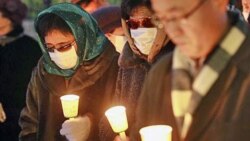“The North Korean people continue to suffer from widespread human rights violations,” said Marzuki Darusman, the United Nations Special Rapporteur on the situation of human rights in the Democratic People’s Republic of Korea. Mr. Darusman noted the extensive use of political prison camps, poor prison conditions and prisoners bring subjected to forced labor, and torture. He also voiced deep concern over severe restrictions on the rights to freedom of opinion, expression, and assembly.
Although the North Korean penal code prohibits torture or inhuman treatment, numerous defector accounts and non-governmental organizations report the use of torture by authorities. Methods of torture reportedly include severe beatings; electric shock; prolonged periods of exposure to the elements; humiliations such as public nakedness; confinement for up to several weeks in small “punishment cells” in which prisoners were unable to stand upright or lie down; being forced to kneel, or sit immobilized for long periods; being hung by the wrists, or forced to stand up and sit down to the point of collapse; and forcing mothers to watch the infanticide of their newborn infants.
Many prisoners reportedly died from torture, disease, starvation, exposure to the elements, or a combination of these causes. Estimates of the total number of prisoners in the political prison camps range between 130,000 and 200,000 detainees.
Special Rapporteur Darusman, as well as other UN and other international human rights monitors have not been permitted to inspect any prisons or detention facilities in North Korea.
The United States remains deeply concerned about the well-being of the North Korean people and has repeatedly called on the DPRK government to uphold the fundamental freedoms of all its people.
Although the North Korean penal code prohibits torture or inhuman treatment, numerous defector accounts and non-governmental organizations report the use of torture by authorities. Methods of torture reportedly include severe beatings; electric shock; prolonged periods of exposure to the elements; humiliations such as public nakedness; confinement for up to several weeks in small “punishment cells” in which prisoners were unable to stand upright or lie down; being forced to kneel, or sit immobilized for long periods; being hung by the wrists, or forced to stand up and sit down to the point of collapse; and forcing mothers to watch the infanticide of their newborn infants.
Many prisoners reportedly died from torture, disease, starvation, exposure to the elements, or a combination of these causes. Estimates of the total number of prisoners in the political prison camps range between 130,000 and 200,000 detainees.
Special Rapporteur Darusman, as well as other UN and other international human rights monitors have not been permitted to inspect any prisons or detention facilities in North Korea.
The United States remains deeply concerned about the well-being of the North Korean people and has repeatedly called on the DPRK government to uphold the fundamental freedoms of all its people.






